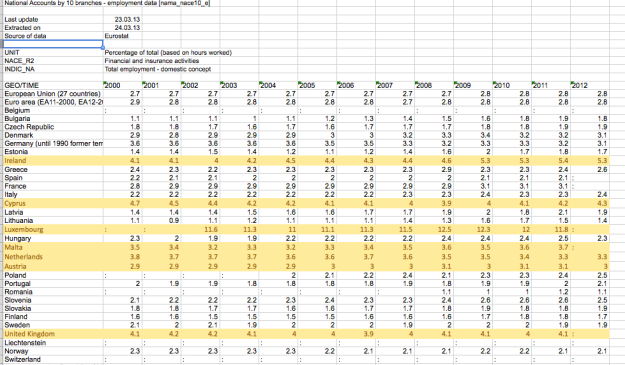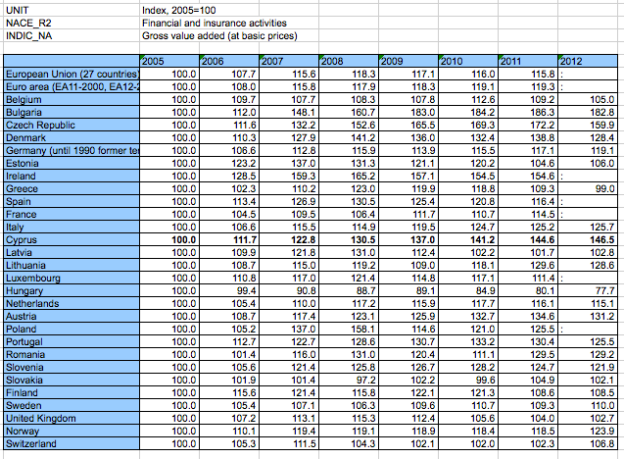There’s a hole in the system, dear Draghi, dear Draghi,
There’s a hole in the system, dear Draghi: a hole.
Then fill it dear Olli, dear Olli, dear Olli,
Then fill it dear Olli, dear Olli: fix it.
With what shall I fill it, dear Draghi, dear Draghi,
With what shall I fill it, dear Draghi: with what?
With taxes dear Olli, dear Olli, dear Olli,
With taxes dear Olli, dear Olli: try tax!
But the tax take is falling, dear Draghi, dear Draghi,
But the tax take is falling, dear Draghi: it falls!
Increase them dear Olli, dear Olli, dear Olli,
Increase them dear Olli, dear Olli: whack’em on!
But tax take falls more now, dear Draghi, dear Draghi,
But the tax falls more now, dear Draghi: it fell!
Squeeze the sovereigns, dear Olli, dear Olli, dear Olli,
Squeeze the sovereigns dear Olli, dear Olli: squeeze them!
But the sovereigns are bursting, they’re bursting, they’re bursting,
But the sovereigns are bursting, they’re bursting: some burst!
Try the savers, dear Olli, dear Olli, dear Olli,
Try the savers dear Olli, dear Olli: try them!
The hole just got bigger, got bigger, got bigger,
The hole just got bigger, got bigger: it grew!
Then the bondies, dear Olli, dear Olli, dear Olli,
If you must it’s the bondies, it’s the bondies: burn them!
Now the system is creaking, is creaking, is creaking,
Now the whole system is dear, dear Draghi: it creaks!
[female voice]
Inflate it dear Draghi, dear Draghi, dear Draghi,
Inflate the system it dear Draghi, dear Draghi: inflate!
But I don’t have a mandate dear Christine, dear Christine,
But I don’t have a mandate dear Christine: don’t ask!
Well then print it, dear Draghi, dear Draghi, dear Draghi,
Well then print it dear Draghi, dear Draghi: please print.
But we don’t have a printer, dear Christine, dear Christine,
We don’t have a printer, dear Christine: there’s no ink!
Well who make money, dear Draghi, dear Draghi?
Well who can make money, dear Draghi: who can?!
Well the banks are supposed to, dear Christine, dear Christine,
Well the banks are that system, the banks: that’s who!
[All together now]
But there’s a hole in the system, dear Draghi, dear Draghi,
There’s a hole in the system, dear Draghi – a hole!































